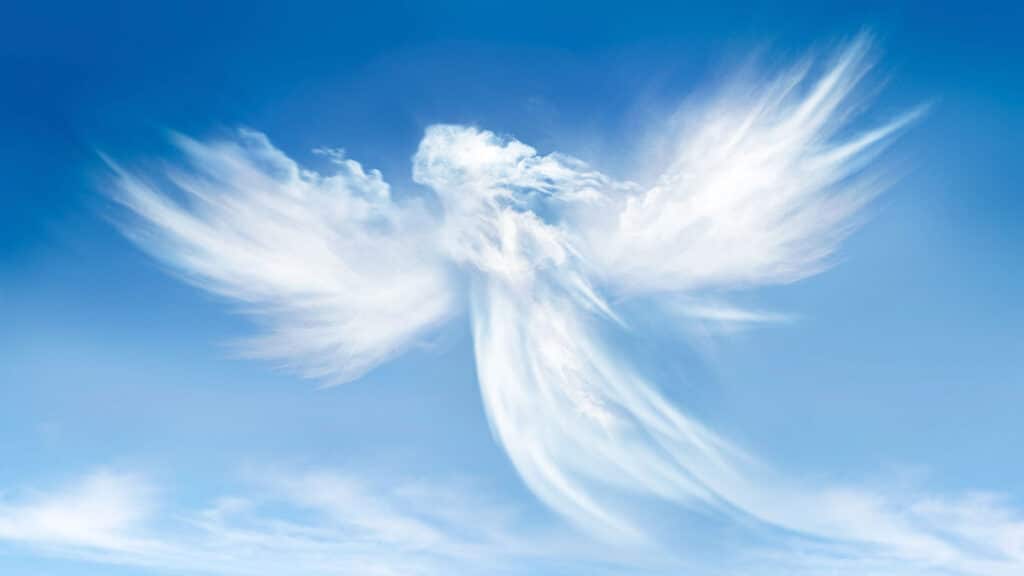Our Lady of the Angels (Queen of the Angels) is a Marian devotion who is the patron saint of Chile, and the inspiration for the name of the City of Los Angeles, California.
The devotion completes the cycle of the Virgin Mary’s life from:
- The Immaculate Conception (Mary’s own divine birth).
- The Annunciation (Archangel Gabriel telling Mary she would bear the son of God in a virgin birth).
- The Nativity of her son which many celebrate as Christmas.
- Mary’s Assumption into heaven.
- Her coronation as the Queen of the Angels.
Recognition of the divinity of women was not part of early Christian teachings. It was desired by the people and finally recognized with the Church’s acceptance of the Immaculate Conception in 1854.
Porziuncula in Assisi
The earliest mention of Our Lady of the Angels comes from a chapel in Italy where St Francis of Assisi founded the Franciscan Order. A “porziuncula” is a little piece or “portion” of land. The word got attached to the chapel.
In Catholic tradition, the faithful could receive an indulgence (forgiveness for a sin) by visiting the chapel or any church on August 2.
The chapel grew into the Basilica of Santa maria degli Angeli e dei Martiri in Rome’s central Plaza de la Repubblica. It was the church of the Italian royal family.
Patron Saint of Chile
Many saints have creation stories associated with a miracle. Our Lady of the Angels became the patron saint of Chile based on what happened in Cartago, a town outside the capital of Costa Rica in 1625.
A woman gathering firewood found a statue of Black Madonna, took it home, and put it in a box. The next day when she went to collect wood the statue was there again. She took it home again and found nothing in the box. After this happened another time, she took the statue to the parish priest who locked it in the altar tabernacle. But it returned to the forest again, so the people built a chapel on the spot.
That chapel grew into La Basílica de Nuestra Señora de los Ángeles (Basilica of Our Lady of the Angels).
Inspiration for the City of Los Angeles, California

Early Spanish explorers named the Los Angeles River, “El Rio Porciuncula” in 1769.
The parish church built near the river is Our Lady Queen of Angels Catholic Church. It’s still there in old downtown Los Angeles.
The city was first named “El Pueblo de Nuestra Señora de Los Ángeles de Porciúncula.” Los Ángeles means “the angels” in Spanish. The name evolved over time into simply Los Angeles.
It’s interesting that the Chilean patron saint is a Black Madonna. It’s easy to assume that the founders of Los Angeles were Mexican (then New Spain). They were, but a plaque in the old main square lists the founding families and their heritage. A few were Spanish, a few were Indigenous, but most of the founding families of Los Angeles were of African descent.
[Editor Keith: I was raised in downtown Los Angeles and went to grade school there. We were never taught that the city founders were mostly from the African Diaspora, but they were.]
In New York City
New York City has Our Lady of Angels, or Our Lady Queen of Angels Catholic churches in Kingsbridge Heights, The Bronx; “El Barrio” East Harlem; and Bay Ridge, Brooklyn.
